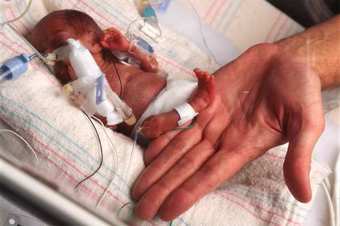SERVIS study
The SERVIS study (Supporting Enhanced Research in Vulnerable Infants) has been running since 2011 and has now enrolled more than 750 infants born preterm or sick. We would like to thank all the parents who have helped us with this research, and the staff (especially the nurses who collect the samples, and the teams of people in the lab who sort and store samples) who have made it possible. Without the support of parents (and babies) we can not find out ways of improving care in the future.
The SERVIS study includes lots of different aspects important to the care of preterm babies. We will be adding more detail over the next few months. In the SERVIS study we collect different types of non-invasive samples (this means we do not do anything extra to the babies to collect them), all with parents permission (signed consent) and under approval from the Research Ethics Committee (a body who oversea all medical research in the UK) and the local hospitals and universities. Although we collect different types of samples, parents have the option of only contributing samples to certain aspects. The aim of the study is to support important research by allowing us to examine why some babies develop problems and others stay healthy. Our research is focused around the gut, nutrition and infection, and the different studies within SERVIS all relate to these themes in one way or another. |

Typical preterm baby weighing around 600g - less than 1 1/2 pounds. {Photo taken with parents permission}
Information for parents
If your baby joined the SERVIS study you will have signed a consent form. If you want more information at any stage, please contact us at the hospital. If you want to tell us what you thought about the SERVIS study, you can let us know here.
|
What samples do we collect and what do we do with them?
|
All the samples we collect would normally be discarded or thrown in the waste. We do not take any extra blood, or ever do any extra procedure to the baby just to collect samples as part of SERVIS. Stool, urine and nasal secretions would normally be disposed of in the waste bin. Any blood left over after routine tests have been completed by the lab would be discarded, but for babies who are in the SERVIS study the samples are placed in a freezer. Normally the left-over samples we store are very small - often only just a few drops. But even these small samples are precious.
|
Samples are stored in hospital or university freezers at -80oC until we analyse them. Any samples we don't use and want to store long-term will then be given an unique and anonymous number (this means people in the lab will not be able to tell who the sample belongs to - only the doctors at the hospital will know). Samples will then be moved to a Biobank. We are creating a Babies Biobank with the support of Tiny Lives charity - this will allow us to store the samples long-term in a safe and sustainable manner.
|
Blood samples
To provide safe and effective care for sick and premature babies it is necessary to perform blood tests. These are taken by trained doctors or nurses and sent to the lab for testing. The tests can tell us if the baby is anaemic, measure the level of drugs, salts or proteins in the body, or look to see if there are any infections. Further information on how we store these blood samples is provided here.
Other samples
|
Stool & urine samples
Most babies pass urine and a stool (poo) every day into the nappy. We can collect a small sample of the stool which we can then store and test to look at the pattern of health bacteria in the gut, and also which other bacteria or germs are present. We think this may tell us why some babies become poorly. We collect the urine using a cotton wool ball which is squeezed out. Analysis of the urine can tell us how the body metabolism is working.
Consent & approvals
|
|
Sometimes we may ask for permission to take other waste samples. At present we are collecting secretions from the nose and mouth. We think the pattern of bacteria in the mouth may tell us how the intestines are working.
|
We can only collect samples if parents sign a form to say they are happy for us to do so. Parents can choose to leave the study at any stage, and/or ask us to destroy any samples we have not used rather than store them longer term. To do this, please contact the doctors at the hospital where your baby was born.
|